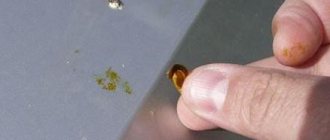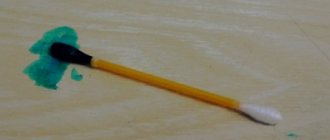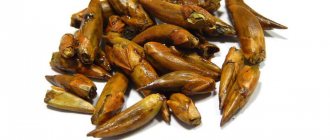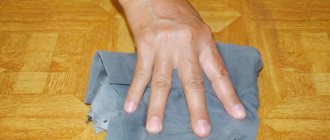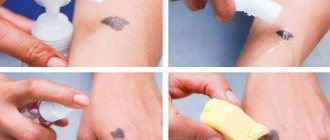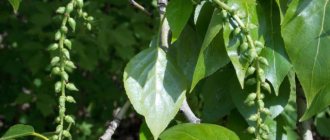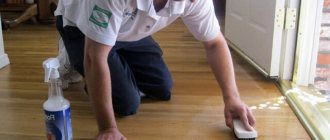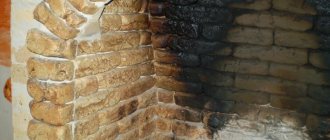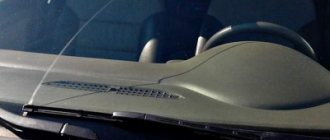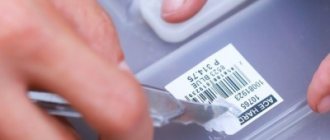If you are faced with the situation of poplar buds sticking to your car, what should you do and what does such contamination entail in the future? Car enthusiasts have already accumulated a sufficient number of recipes for removing sticky poplar buds; on the shelves of specialized stores you can choose both budget and expensive products, but it is not always possible to get rid of contaminants completely.
The composition of poplar buds includes a lot of different acids, including fatty acids, as well as resins, which together give a very strong adhesive effect. Over time, these substances enter into chemical reactions with the car's paintwork, thereby corroding the entire surface.
How to wash the body from traces of poplar resin, linden and pine
At first glance, what could be simpler than soaking a cotton swab in alcohol and wiping the defective area. Despite the simplicity of the operation, there are a couple of subtleties, which means you should not take it so lightly. For example, we rarely immediately observe spots in their pure form. As a rule, the body is dotted with buds, some of which have opened, and some continue to remain closed. So brushing both of them away is not an easy task.
This is usually done with a dry rag, literally wiping off the wood products. This is a mistake and should not be done under any circumstances, as the body will be covered with new tar spots. We don’t need extra traces, so the buds must be removed so that the resin does not leak out of them. In this regard, experienced motorists have found a universal trick - moisten a rag in warm water, wring it out thoroughly and skillfully brush foreign bodies off the hood, roof and trunk to the side.
Further work is done on a dry and clean body. When washing or wiping the body dry, there is no need to worry that the resin will smear onto the paintwork and even more stains will appear. If you have correctly removed the buds from the paintwork, then you will only have stubborn areas in your arsenal, which cannot be removed or smeared with a dry or damp cloth.
So, the body is dry and clean, at least half an hour of free time is at your disposal, the necessary chemicals have been purchased, the cotton pads are ready - let's get started:
Apply an alcohol/acid compress to the affected areas of the body. To do this, soak the cotton wool in the cleaning liquid and place it on the defective location.
After 10-15 minutes, we remove the cotton pads and observe the following: part of the tree resin is literally absorbed into the tampon, and the one that remains on the body has softened a little. Throw away the smeared cotton wool.
Re-wet the cotton pad in the cleaning solution and wipe off any remaining resin from the paintwork. There is no need to worry about the possible appearance of scratches on a clean body even in the absence of wind.
At the finish, we wet a clean rag in the same cleaning solution and go over the former stains again in order to consolidate the result.
What is the best way to wash poplar buds from a car?
Manufacturers of modern auto chemicals offer consumers special products called “anti-poplar” or resin remover to combat traces of poplar fluff on the car body. They specially contain elements that effectively corrode ingrained resin without damaging the car’s paintwork.
The range of such products is quite wide and is constantly being updated. Moreover, many car enthusiasts also use the above-mentioned bitumen and insect cleaners to remove poplar buds.
Based on tests and reviews found on the Internet, a non-advertising rating of products for cleaning poplar from a car was compiled. Reviews are often contradictory, and the conditions for using the products differ, so the results of using one or another cleaner may differ.
Astrohim
Astrochim AC395 is positioned as a cleaner for poplar and bitumen stains. Sold in a 500 ml bottle with a manual trigger sprayer. Produced on the territory of the Russian Federation. Real tests have shown that the cleaner copes well with both traces of fresh poplar fluff and hardened resin. In addition, it has a good price-to-volume ratio in the bottle. The only drawback of the Astrokhim cleaner is the presence of a manual sprayer, which is not always convenient when treating large areas.
The price of one 500 ml bottle as of summer 2019 is about 150 rubles. Packages of other volumes are also available - 250 ml, 335 ml and 5 liters.
1
Lavr
Bitumen stain cleaner “Lavr” Ln1403 copes well with yellow, even old stains left on the car’s paintwork. The effectiveness of the product is excellent, the only drawback is that it is slightly overpriced, as for a domestic product. Supplied in a 500 ml plastic bottle with a manual spray trigger.
It can also be used for treating and cleaning rims and other elements of the car body, removing bitumen, pollen and other contaminants. In fact, the tool is universal. The price of the indicated bottle with a volume of 500 ml as of the above period is about 340 rubles.
2
Atas Decabit
Atas Decabit 10738 is positioned by the manufacturer as a universal product, but the emphasis is on removing tar and bitumen residues. It also does an excellent job of removing poplar buds, resin, and pipe adhesive sealant (it was presented as a test specimen). Unlike the products presented above, it is in the form of an aerosol, so it is much easier to apply. In addition, the liquid has a pleasant aroma.
It is sold on the market in a 250 ml aerosol can. The price of one such package is about 270 rubles.
3
K2 TAR Remover
Another excellent product for removing poplar buds and resin from the Polish company K2 K193. Positioned as a bitumen stain remover. Supplied in a 300 ml aerosol can. Easy to apply. Removes dirt 10...15 minutes after application. Real tests have shown the high efficiency of this product. With its help, you can remove both fresh and old resinous deposits on the paintwork of your car.
Also pleasing is the price of the K2 cleaner - namely 200 rubles for a volume of 300 ml.
4
Grass Mosquitos Cleaner
The specified product from 118105 is positioned as a means for quickly and easily removing insect residues, resin and tree buds from glass, plastic and chrome bumpers, hoods, and radiator grilles. Sold in two formulations - a concentrate (5 liter canister) and a small 250 ml can for private use.
The effectiveness of the Grass cleaner has been repeatedly proven by real tests conducted by car owners. In particular, the product is able to cope with even the oldest yellow stains left by poplar buds and resin. What makes it stand out is its price, namely 200 rubles for the indicated 250 ml package as of the period indicated above.
5
Astronish Tar & Insect Remover
Astronish Tar & Insect Remover 707050 is produced in the UK, and is positioned by the manufacturer as a cleaner for tar and insect traces. As for efficiency, it is above average. That is, the cleaner really does a good job of scrubbing off even dried dirt, but one of the disadvantages worth noting is the fact that it smears heavily on the surface, and therefore you need to spend a lot of effort and time to wipe it dry.
Another advantage worth noting is the large volume of packaging at a relatively low price. Thus, it is sold in a 750 ml bottle with a manual trigger sprayer. The cost of one package is about 250 rubles.
6
Gazoiler
A product called Gazoiler 1153-GC205 is a cleaner for bitumen stains, tar, wood buds and other similar contaminants on paintwork and car glass. Experience in use has shown its fairly high efficiency and copes well with any poplar “waste”. The only drawbacks include the presence of a manual trigger on the package, as well as a strong smell, which sometimes interferes with operation. But if you spray it in the fresh air, then everything is quite acceptable.
The volume of one plastic bottle is 400 ml. Its price as of summer 2022 is about 220 rubles.
7
PINGO Tar Remover
An excellent German cleaner for bitumen and tarry contaminants. As for the effectiveness of this drug, there are no complaints about it. It copes well with almost all contaminants left by poplar buds and resin. Moreover, it is noted that very little time and mechanical effort are required for removal. However, closer to the end of the list, the Pingo bitumen cleaner 002716 was placed due to its unreasonably high price. There are many of its cheaper competitors on the market.
Sold in a 400 ml aerosol can. Its price is about 800 rubles. But if the result is important, and not the savings, then the product is definitely recommended for purchase.
8
Liqui Moly
The solution for removing bitumen stains from the famous German works well with traces of poplar fluff, buds and resin. The cleaner generally copes with fresh tar stains without any problems. As for older stains, it is necessary to either apply more mechanical effort, or wait longer until the stain softens better. But overall, the effectiveness of the Liqui Moly cleaner is quite good.
The cleaner is sold in a 400 ml aerosol can, item number 7603. Its price is about 800 rubles.
9
Sonax
Sonax 334200 makes a product called Tree Resin Cleaner that works great on fresh and hardened poplar marks on your car's hood, roof, and glass. Tests have shown extremely high efficiency. The time and effort required to remove even old stains is minimal. If you need an effective cleaner and have the money, it’s worth a try.
Sold in a 400 ml aerosol can. Moreover, the price of one such package is about 900 rubles.
10
Folk way to remove marks from poplar buds
To safely remove marks on the hood and roof of a car, you will need a simple product that costs a penny and is always available for sale. This is ammonia (or ammonia).
Apply the product to the dried mark, leave it for a while, and then remove the problematic stain mechanically - with a regular paper napkin. You will see the result immediately.
If the stain is not removed immediately, add a drop of ammonia and leave it to start the chemical reaction. And then remove this “plaque” with a napkin.
It is necessary to prepare a hand sanitizer (preferably not a cheap one and from a well-known brand) to remove tar or other adhering substances.
- Take hand sanitizer and apply one drop directly to the tar stain or sticky wood bud.
- Using one finger, gently rub this drop of hand sanitizer over the entire surface of the sticky spot
- Dry the smeared stain with a paper towel or large napkin
- Wash off any remaining sticky substance on the car body using a damp cloth or paper towel.
Protective measures
The simplest and most effective way to prevent the problem is not to park in the shade of trees , especially if poplars grow nearby. True, in the city and especially in the heat, this method can hardly be called optimal: in the open sun the varnish and paint will simply fade, and not a single driver will want to sit in a hot interior after such a parking lot.
If poplars grow near the parking lot near your house, it may be worth leaving your car in closed parking lots during the poplar flowering period or finding another parking space, away from the vegetation.
If you can’t get the car away from the poplar tree, you can at least make an improvised “cover” by covering the roof and hood with two pieces of film. The film can be secured using doors and a closed hood. This way, no resin will get on the car, regardless of where it is parked.
Another strategy for controlling poplar buds is to protect the paintwork.
In this case, even if substances that destroy paintwork come into contact with the body, its varnish and paint will not be damaged. And any dirt that gets in will be removed easily and quickly.
We will not recommend covering the body with vinyl film. The harmful consequences of such a procedure were discussed in detail in this article. In short: this is expensive jewelry work, made haphazardly with questionable materials, the film will ruin the body, and you will have to remove it with varnish and paint.
A safe alternative is a thin transparent protective film that is formed on the body by long-term polishes containing nanoparticles.
Liquid glass-type compositions will not only protect paintwork from resin and juice, but will also prevent paint fading and minor scratches. And externally, after a complex of nano-processing, the car body will look as if covered with transparent glaze. The effect of this body treatment with proper care lasts up to two years.
Special active foam: effectively remove kidney stains
Probably, many car enthusiasts have high-pressure devices in their garage or private home and these people wash their cars themselves. There is a special preparation, an additive to the main shampoo, which effectively copes with traces of any insects and poplar buds. The product is sold in any auto stores.
Among the obvious advantages of this composition for combating kidney disease is the complete absence of any damage to the paintwork of the body. Also, using the composition will not cause difficulties and is ideal for use at home. With a high-pressure washer and this product, you won’t have to think twice about removing traces of poplar buds from your car. It's reliable, simple and effective. But not everyone has such a sink. For those who don’t have it, you’ll have to look for folk recipes.
TAKE CARE OF YOUR FEET
Walking four-legged pets also brings inconvenience. The dog comes home with a thick layer of poplar buds on his paws. Fortunately, they do not cause any harm to the animal’s health, but they are difficult to clean, plus they leave sticky stains on the floor.
“Bathing in simple soapy warm water for a few minutes helps a lot; it’s much better than using advertised chemicals,” advises the owner of a network of veterinary clinics near Moscow, Dmitry Fedoseev. – Another great option is to trim the hair on the paw pads and between the toes: then there will be fewer stuck buds. If these two methods do not help, dry your paws with a wet towel.
"White Spirit"
This popular product works much more gently than household aggressive liquids.
It will not damage the paint and copes well with bitumen stains. But there is an opinion that “White spirit” still copes with kidney stains, and does it well. If you don’t want to go to the store for specialized auto chemicals or have nothing to wash poplar buds from your car, then this is the best way. You can safely use it without fear for the body coating.
Note: test review of automotive resin cleaners
The magazine "Behind the Wheel" tested products from various manufacturers. The essence of the test procedure was to evaluate the effect after using the drug in full accordance with the instructions. Resin cleaners from the following companies took part in the “race”:
Conventionally, products are divided into two groups: fast-acting (Astrochem, Liqui Moly, Kangaru, Avtoprofi, Sonax, Pingo), requiring long exposure (Grass, Tekson). Theoretically, the following is expected: the former do not drain, concentrating the entire volume on the affected area, the latter dissolve stains more effectively, but require more consumption. Practice confirms this.
When choosing, it is important to consider the smell. The procedure for interacting with the drug is often slow, so the aroma should not be strong. Everything is aimed at not causing discomfort to the operator, especially in the heat. The mixture from Astrohim most accurately satisfies these conditions.
Almost all compositions cope with the task with dignity. However, there are still favorites - Texon and Astrohim. At a minimal price, they fulfill their purpose as transparently as possible. Let Tekson complete the task with a significant amount of time (withstand at least 5-10 minutes), but he washes off poplar resin and road petrochemicals the first time.
Source
Drug "Antitopol"
These formulations are ideally formulated for tasks such as removing poplar bud stains.
They are fighting this problem as effectively as possible. They work and are popular, but the result will be if the stain is less than a year old. Nothing can deal with one-year-old spots.
Important: do not delay removal and do not try to wipe off the resin mechanically - this will only damage the paintwork.
A few important rules
If a car enthusiast has already figured out how to wash poplar buds from a car and has chosen the best option for this, it is necessary to follow several basic rules. They will help not harm the body coating.
So, you should not start the cleaning procedure in direct sunlight. It is better to do this in a garage if the sticky stain was not removed immediately for some reason. Next, do not scrub the stain with zeal.
This can damage the paintwork. You need to work slowly and effortlessly. If alcohol is chosen as the main cleaning agent, then to be safe, it is better to dilute it with water.
Before starting work on the surface, you should wash the body with water and some detergent. This will degrease the area. Also, the procedure should be repeated after removing the stain.
And the last thing that can be said about this. It is best not to park cars under these trees. But if there is no other option and is not foreseen, then antibacterial wipes will help. They can quickly and effectively get rid of these problems. And if the stains are old, then now you know how to wash poplar buds from your car quickly and effectively.
So, we figured out how to deal with this problem.
An interesting and inexpensive way
Here is another rather interesting method for those who do not know how to wash poplar buds from a car.
For this you need a construction hairdryer, although you can get by with a household one.
So, the stain should be warmed up, then it should be carefully wiped off with a cotton swab dipped in ammonia. Next, you need to quickly wipe the area. It is best to wash it with soapy water.
How to wash grass?
When deciding on the choice of necessary products, it is important to understand that using exclusively laundry detergent, even the highest quality one, may not be sufficient.
Dirty clothes should first be soaked, and most often, the soiled areas should be treated separately. For these purposes it is good to use:
vinegar;
- salt;
- citric acid;
- stain remover;
- laundry soap;
- peroxide;
- soda;
- ammonia alcohol, as well as denatured alcohol;
- washing powder.
In addition, you will need available tools, namely:
- Bowl;
- napkin;
- sponge;
- soft cloth.
